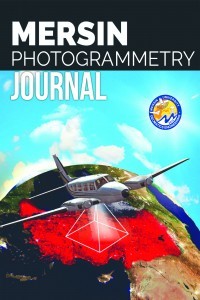Assessing road roughness using UAV-derived dense point clouds
Assessing road roughness using UAV-derived dense point clouds
UAV, Sfm, Point Cloud Road Insfracsture, Rougness,
___
- King, B. A. (2014). The effect of road roughness on traffic speed and road safety. Master’s Thesis. University of Southern Queensland.
- Bester, C. J. (2003). The effect of road roughness on safety. 82nd Annual Meeting of the Transportation Research Board, Washington, DC.
- Davies, R. B., Cenek, P. D., & Henderson, R. J. (2005). The effect of skid resistance and texture on crash risk. Proceedings Surface Friction Roads and Runways, Christchurch, 1-4.
- Wu, J., & Song, X. (2020). Review on smart highways critical technology. Journal of Shandong University (Engineering Science), 50, 52-69
- Ihs, A. (2005). The influence of road surface condition on traffic safety and ride comfort. 6th International Conference on Managing Pavements 19–24 October 2004. Brisbane Convention & Exhibition Centre, Queensland Australia, 11-21.
- Kumar, P., Lewis, P., McElhinney, C. P., & Rahman, A. A. (2015). An algorithm for automated estimation of road roughness from mobile laser scanning data. The Photogrammetric Record, 30(149), 30-45. https://doi.org/10.1111/phor.12090
- Hesami, R., & McManus, K. J. (2009). Signal processing approach to road roughness analysis and measurement. TENCON 2009-2009 IEEE Region 10 Conference, 1-6. https://doi.org/10.1109/TENCON.2009.5396085
- Zhou, Y., Guo, X., Hou, F., & Wu, J. (2022). Review of intelligent road defects detection technology. Sustainability, 14(10), 6306. https://doi.org/10.3390/su14106306
- Yiğit, A. Y., & Uysal, M. (2021). Yüksek çözünürlüklü insansız hava aracı (İHA) görüntülerinden karayolların tespiti. Bitlis Eren Üniversitesi Fen Bilimleri Dergisi, 10(3), 1040-1054. https://doi.org/10.17798/bitlisfen.900817
- Uysal, M., Toprak, A. S., & Polat, N. (2015). DEM generation with UAV Photogrammetry and accuracy analysis in Sahitler Hill. Measurement, 73, 539-543. https://doi.org/10.1016/j.measurement.2015.06.010
- Akca, S., & Polat, N. (2022). Semantic segmentation and quantification of trees in an orchard using UAV orthophoto. Earth Science Informatics, 15(4), 2265-2274. https://doi.org/10.1007/s12145-022-00871-y
- Smith, A., & Sarlo, R. (2022). Automated extraction of structural beam lines and connections from point clouds of steel buildings. Computer‐Aided Civil and Infrastructure Engineering, 37(1), 110-125. https://doi.org/10.1111/mice.12699
- Snavely, N., Seitz, S. M., & Szeliski, R. (2008). Modeling the world from internet photo collections. International journal of computer vision, 80, 189-210. https://doi.org/10.1007/s11263-007-0107-3
- Toprak, A. S., Polat, N., & Uysal, M. (2019). 3D modeling of lion tombstones with UAV photogrammetry: a case study in ancient Phrygia (Turkey). Archaeological and Anthropological Sciences, 11(5), 1973-1976. https://doi.org/10.1007/s12520-018-0649-z
- https://www.cloudcompare.org/doc/wiki/index.php/Roughness
- Gillespie, T. D. (2021). Fundamentals of vehicle dynamics. SAE international.
- Yayın Aralığı: Yılda 2 Sayı
- Başlangıç: 2019
- Yayıncı: Mersin Üniversitesi
Investigation of geometric object and indoor mapping capacity of Apple iPhone 12 Pro LiDAR
Mehmet Akif GÜNEN, İlker ERKAN, Şener ALİYAZICIOĞLU, Cavit KUMAŞ
Assessing road roughness using UAV-derived dense point clouds
Accuracy comparison of mobile mapping system for road inventory
Detection of COVID-19 infection from CT images using the medical photogrammetry technique
Hatice ÇATAL REİS, Veysel TÜRK, Serhat KAYA
Analysing detail preserving capabilities of bilateral, laplacian and taubin mesh filtering methods
